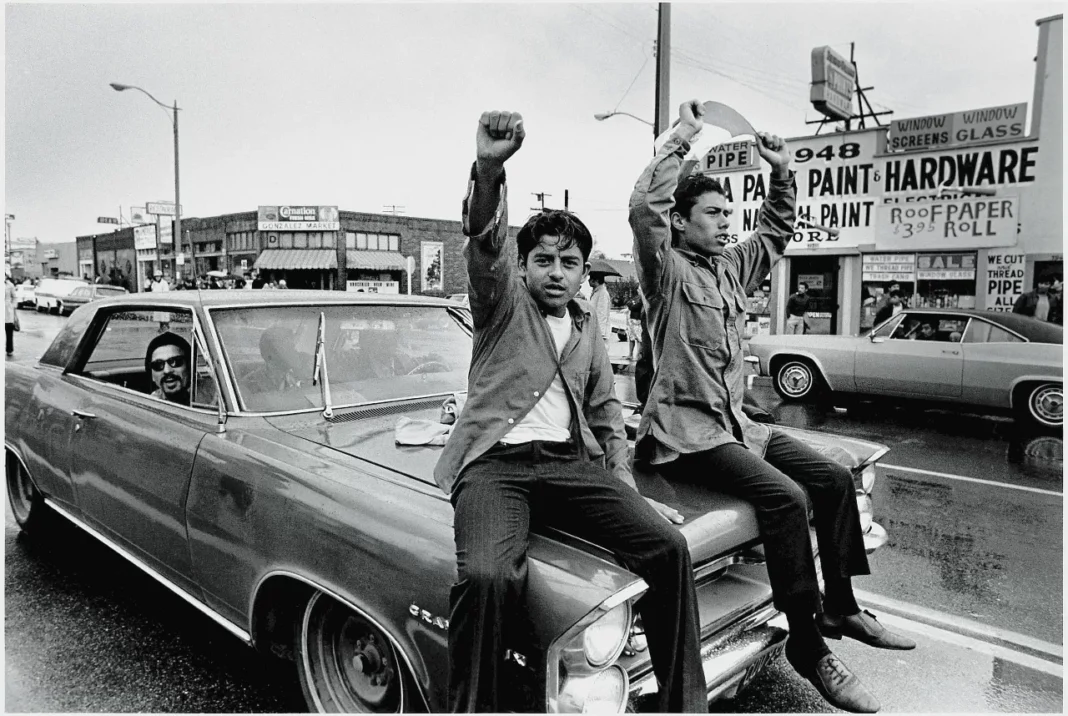In 1970, the streets of Los Angeles were filled with a powerful and determined force – 25,000 Chicanos marching against racism and the war in Vietnam. It was a historic moment, a turning point in the fight for equality and justice for the Chicano community. And today, 50 years later, the struggle continues.
Back in 1970, the Chicano Movement was at its peak. Inspired by the civil rights movement, Chicanos took to the streets to demand an end to the systemic discrimination and oppression they were facing. They marched with passion and conviction, chanting “¡Si se puede!” – Yes, we can! – and carrying signs that read “Chicano Power” and “Viva la Raza”. The message was clear – enough is enough, it’s time for change.
The Chicano community had long been marginalized and ignored by society, but in 1970, their voices could no longer be silenced. They were tired of being discriminated against in schools, denied job opportunities and treated as second-class citizens. And they were also tired of being sent off to fight in a war that was not their own, while their own communities were suffering.
The historic march in 1970 was a symbol of strength and unity for the Chicano community. It represented a powerful shift in consciousness, as Chicanos from all walks of life came together to stand up for their rights. With their fists raised high, they made it clear that they were not afraid to fight for what they believed in.
But unfortunately, the struggle did not end there. Today, the Chicano community is still facing many of the same issues as they were in 1970. Racism is still rampant, and the war on immigrants continues to wage on. The community is still fighting for equal representation and opportunities, and for their voices to be heard.
One of the most pressing issues in the Chicano community today is the ongoing fight against police brutality. Time and time again, we have seen innocent Chicanos being targeted and mistreated by law enforcement, simply because of the color of their skin. This injustice cannot continue, and the Chicano community will not rest until there is accountability and change.
The issue of immigration also remains at the forefront of the struggle. The Chicano community is made up of immigrants, and their families have been torn apart by cruel immigration policies. This is a human rights issue that requires immediate attention and action. The Chicano community will continue to push for fair and just immigration reform and fight against the demonization of immigrants.
But amidst these ongoing challenges, the Chicano community remains resilient and determined. Just like in 1970, they continue to come together and raise their voices against injustice. Unity and solidarity are at the core of the Chicano movement, and it is these values that will propel them forward in their fight.
The Chicanos of today are building upon the legacy of those who marched in 1970. They are standing on the shoulders of giants, and their commitment to the cause is unwavering. As the great civil rights activist Cesar Chavez once said, “The fight is never about grapes or lettuce. It is always about people.”
The struggle of the Chicano community is a reminder that the fight for justice is ongoing, and everyone has a role to play. It is a call to action for all of us to stand in solidarity with our fellow human beings and demand a better, more equal world for all.
So on this 50th anniversary of the historic Chicano march, let us remember the bravery and determination of those who led the way. Let us honor their legacy by continuing to fight against racism, inequality, and oppression. And most importantly, let us never forget that the struggle continues, and it is up to each and every one of us to keep fighting for a better tomorrow. ¡Sí se puede!


